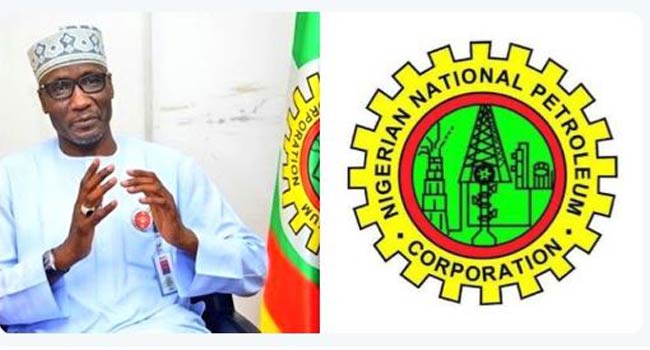The Nigerian National Petroleum Corporation (NNPC) has signed a five-year agreement worth $1.04 billion with the African Export–Import Bank (Afreximbank).
The deal is the biggest so far at the ongoing Intra-African Trade Fair in Durban, South Africa.
This is just as the Group Managing Director of the NNPC, Mallam Mele Kyari yesterday predicted that crude oil prices may hit $100 per barrel mark in the coming months as global inventory tightens and the Organisation of Petroleum Exporting Countries (OPEC) continues to resist pressure to pump more oil into the market.
In terms of the NNPC and Afreximbank deal, it was gathered that it did not involve exploration of crude oil, but mainly for trade financing and export of the crude produced by the national oil company, although details still remained sketchy last night.
Arise News Channel reported that the $1.04 billion would be repaid to the continental bank with about 25,000bpd of crude oil produced by the state oil company.
It quoted the President of the bank, Benedict Oramah, as saying that the deal would benefit Nigeria, promising to fund similar projects across Africa.
The bank also signed a $250 million contract with an aviation logistics company, Blue Horn, to fund the upgrading of three airports in Nigeria and another $270 deal for oil exploration activities with Mars E&P.
The Intra-African Trade Fair (IATF2021) kicked off on 15th November with the the theme: “Building Bridges for a successful AfCFTA”, and has so far attracted thousands of visitors to the Durban International Convention Centre where it’s taking place.
Meanwhile, speaking on Bloomberg Television, Kyari also raised doubts about the ability of the producers’ group to ramp up production in the short term as investment in the industry continues to wane.
OPEC has continued to stick with its agreed plan since July, to release an additional supply of 400, 000 barrels every month to gradually return the cuts it embarked upon in the wake of the COVID-19 pandemic last year, despite promptings from the United States, India, Japan and other countries to supply more barrels.
Currently, the global oil market has a deficit of over 600,000 bpd, a development that has led to increase in oil and gas prices and bringing along attendant inflationary pressures.
Despite the over 1.6 million bpd allocated to Nigeria in September and October, the country was only to supply 1.399 million bpd and 1.354 million barrels in September and October respectively on the back of weak infrastructure and sabotage.
Speaking further, Kyari argued that the plan by the United States to release oil from its special reserves has to be very significant to make any long-term impact on global oil prices, explaining that although Nigeria has faltered in meeting its OPEC allocation, by the end of the year, the country may be able to hit 1.8 million bpd, excluding condensates.
“It’s very obvious that by the close of the year, we will get back to the 1.7 barrels to 1.8 barrels per day of crude oil.
When I mention this figure, I am only talking about crude oil because we also produce condensates and when you combine, we can easily hit 2.0 million barrels by the end of the year,” he stressed.




